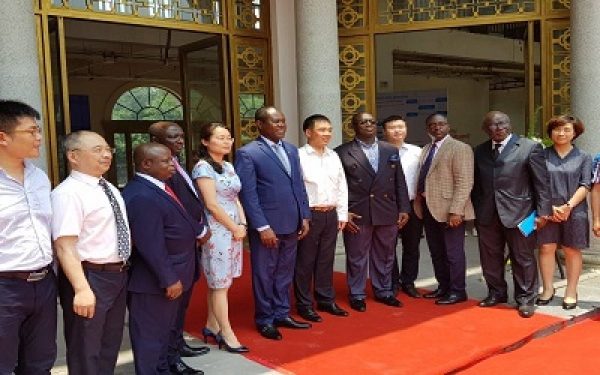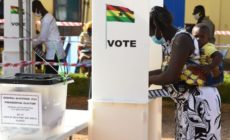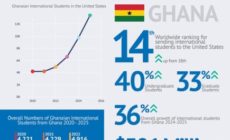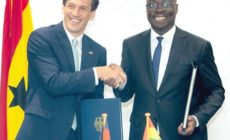Ghana-China Cocoa International Exchange (GCCIE) was unveiled in the historic Chinese city of Changscha in the Hunan Province.
The exchange, housed in a three-storey building, is an initiative of the two countries and was facilitated by Ghana’s Mission in China, under the supervision of the ambassador, Mr Edward Boateng.
At the grand unveiling ceremony, Mr Boateng and the Chief Executive Officer (CEO) of the Ghana Cocoa Board (COCOBOD), Mr Joseph Aidoo, were assisted by the Vice Director-General of the Department of Commerce of the Hunan Province, Mr Li Xinqui, and some officials from the province to unveil the plaque.
Other Ghanaians who assisted in the unveiling of the exchange were the Managing Director of the Cocoa Processing Company, Nana Agyenim Boateng; the MD of the Cocoa Marketing Company (CMC), Dr Mensah Aborampah; the Director of Research of COCOBOD, Mr Vincent Okyere Akomeah, and a board member of COCOBOD, Dr Emmanuel Tuffuor.
The exchange building, which is located in the prime business area of the province and overlooking the River Yangshi, was provided by the authorities of the Hunan Province, who are also furnishing it.
It has offices, a very large space for showcasing and sale of cocoa products, and apartments for COCOBOD executives who will travel to the province on official assignments.
The official opening of the exchange is expected to take place before the end of the year. It will be stocked exclusively with a range of Ghana’s cocoa products, such as cocoa beans, semi-finished products such as cocoa liquor, cocoa butter, cocoa cake, as well as confectioneries.
The decision to designate the building as Cocoa House was arrived at after officials from the province visited Ghana last year and signed an MoU with CMC to create a bigger awareness of cocoa in Ghana.
The Cocoa House will thus serve as a platform and avenue for the Department of Commerce of the Hunan Province to educate the Chinese population on the health benefits of cocoa, to help increase the marketing and sale of cocoa products in China, which is considered the world’s biggest market for the consumption of coffee and tea.
Ghana enters Chinese market with cocoa
- Posted on
- Comment











 (Selorm) |
(Selorm) |  (Nana Kwesi)
(Nana Kwesi)